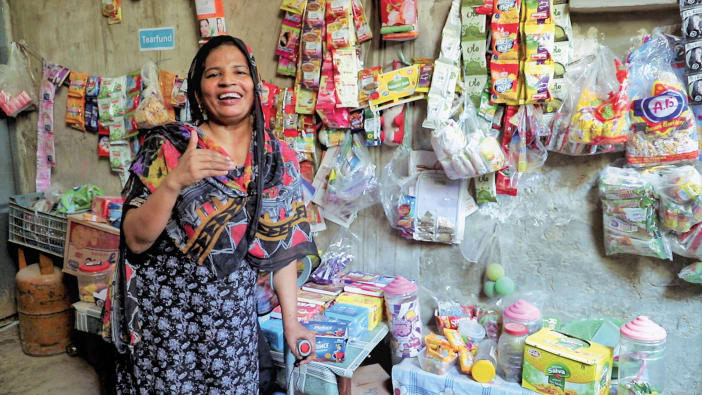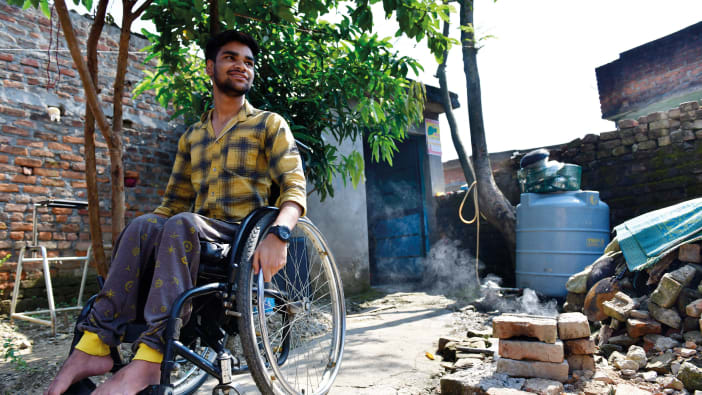Read Mark 2:1–12
What a crowd! As always, people had come from far and wide to hear Jesus teach. But it must have been very difficult for people with disabilities to actually meet him. Those with limited mobility could not walk to him. People with hearing or visual impairments could not hear or see him. Those classed as ‘unclean’ (eg people with leprosy) were unable to approach or touch him.
But here we see a group of people go to great lengths to make sure their friend meets Jesus. They go beyond the act of showing sympathy to him. They pick him up and carry him, possibly for miles, to where Jesus is speaking.
But when they get there, the house is full! Not put off by this, they decide to literally break down the barriers between their friend and Jesus. They make a hole in the roof and they lower the man down (Mark 2:4).
Met with love
When the man reaches the ground, he is met with love. Jesus says, ‘Son, your sins are forgiven’ (Mark 2:5). It is almost as if Jesus is ignoring the disability. It is like he is saying, ‘Don’t worry about your disability, something far greater has happened: your sins are forgiven!’ This man – like any other person – needs forgiveness, and Jesus knows that his eternal soul is much more important than any impairment. Almost as an afterthought, in order to show that he is God to the religious leaders, Jesus heals the disability.
Unfortunately, and sadly, our churches often put up barriers which prevent people with disabilities from meeting God. These are not just physical barriers, but can be caused by people’s attitudes too: for example, comments about a person with an intellectual disability making distracting sounds or movements.
An important task
According to the Lausanne Movement for World Evangelisation, ‘those with disability represent one of the largest unreached people groups’. Only five to ten per cent have effectively heard the gospel.
Like the group of friends, our task is to remove the barriers experienced by people living with disabilities, making it possible for everyone to meet with Jesus.
Discussion questions
- Are there any barriers in your church that prevent people with different kinds of disability from hearing the gospel and meeting Jesus? Think about people’s attitudes as well as physical barriers.
- What can you and your church do to break these barriers down?
- How can you show love, today, to someone who is living with a disability?
A challenge from the Lausanne movement
‘Serving people with disabilities does not stop with medical care or social provision; it involves fighting alongside them, those who care for them and their families, for inclusion and equality, both in society and in the church. God calls us to mutual friendship, respect, love, and justice.’
Recommended reading: Disability in mission: the church’s hidden treasure, edited by David Deuel and Nathan John.
You can find more information about the Lausanne Movement on their website, available in English, French, Spanish and Portuguese: www.lausanne.org









